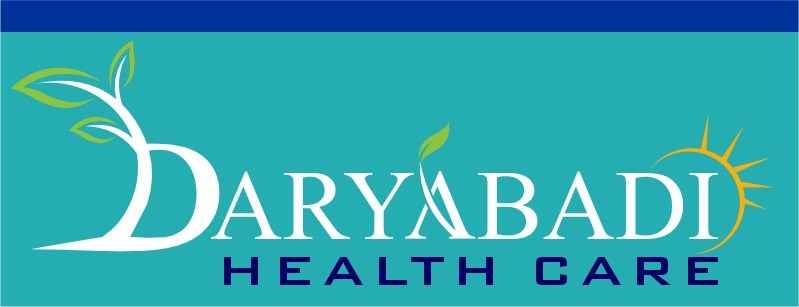HERBAL APPROACHES TO MANAGE HIGH BLOOD PRESSURE

INTRODUCTION:
High blood pressure, or hypertension, is a common condition characterized by elevated blood pressure levels, often referred to as the “silent killer” due to its asymptomatic nature. While medication is commonly prescribed to manage hypertension, many people are exploring natural and herbal approaches as complementary or alternative treatments. In this blog, we’ll explore herbal remedies and lifestyle interventions that can help manage high blood pressure effectively and promote cardiovascular health.
DISCLAIMER: The information provided in this blog is for educational and informational purposes only and is not intended as medical advice. The content is not intended to diagnose, treat, cure, or prevent any disease. Readers are advised to consult with a qualified healthcare professional regarding their specific health concerns and before starting any herbal remedies or health regimen. While every effort has been made to ensure the accuracy and completeness of the information presented, the author and publisher assume no responsibility for any errors or omissions. The use of herbal remedies and traditional medicine should be undertaken with caution and under the guidance of a qualified healthcare practitioner, especially for individuals with pre-existing medical conditions or those taking medications. The inclusion of specific herbs or formulations in this blog does not imply endorsement or recommendation. Individual responses to herbal remedies may vary, and it is important to consider individual health needs and sensitivities. Always read product labels and instructions carefully before use. By accessing and using this blog, readers acknowledge and agree to the terms of this disclaimer and release the author and publisher from any liability arising from the use or misuse of the information provided.
Understanding High Blood Pressure:
Before delving into herbal approaches, let’s briefly understand high blood pressure. Blood pressure is the force exerted by circulating blood against the walls of blood vessels. When this pressure remains consistently high, it can strain the heart and blood vessels, increasing the risk of serious health complications such as heart attack, stroke, and kidney disease. Lifestyle factors, genetics, and underlying health conditions can contribute to high blood pressure.
HERBAL APPROACHES TO MANAGING HIGH BLOOD PRESSURE:
Hawthorn (Crataegus spp.):
Hawthorn is a well-known herb traditionally used to support cardiovascular health and manage high blood pressure. It contains compounds like flavonoids and procyanidins that help dilate blood vessels, improve blood flow, and strengthen the heart muscle. Research suggests that hawthorn supplementation may help lower both systolic and diastolic blood pressure levels. Hawthorn can be consumed as a tea, tincture, or standardized extract for optimal cardiovascular support.
Garlic (Allium sativum):
Garlic has been valued for its medicinal properties for centuries, including its ability to promote heart health and lower blood pressure. Garlic contains sulfur compounds like allicin, which have vasodilatory effects and help relax blood vessels, leading to reduced blood pressure. Studies have shown that regular garlic consumption or garlic supplements can help lower both systolic and diastolic blood pressure levels, particularly in individuals with hypertension. Incorporating fresh garlic into your diet or taking garlic supplements can offer cardiovascular benefits.
Olive Leaf (Olea europaea):
Olive leaf extract is derived from the leaves of the olive tree and has been studied for its potential antihypertensive effects. The active compounds in olive leaf extract, including oleuropein and hydroxytyrosol, have been shown to relax blood vessels, reduce inflammation, and improve endothelial function, all of which contribute to lower blood pressure. Olive leaf extract supplements are available in various forms and can be used as part of a holistic approach to managing hypertension.
Celery Seed (Apium graveolens):
Celery seed has been used in traditional medicine for its diuretic and antihypertensive properties. It contains compounds like phthalides, which help relax blood vessels and reduce blood pressure levels. Research suggests that celery seed extract supplementation may help lower both systolic and diastolic blood pressure, making it a valuable herbal remedy for hypertension management. Celery seed extract can be taken as a supplement or added to foods and beverages for added cardiovascular support.
Hibiscus (Hibiscus sabdariffa):
Hibiscus tea, made from the dried calyces of the hibiscus flower, has gained popularity for its potential to lower blood pressure. Hibiscus contains anthocyanins and other antioxidants that help relax blood vessels and inhibit the activity of angiotensin-converting enzyme (ACE), a key regulator of blood pressure. Several studies have demonstrated the blood pressure-lowering effects of hibiscus tea, with some suggesting it may be as effective as certain antihypertensive medications. Enjoying hibiscus tea regularly can be a delicious and natural way to support cardiovascular health.
French Maritime Pine Bark (Pinus pinaster):
French maritime pine bark extract, also known as Pycnogenol®, is a potent antioxidant derived from the bark of the maritime pine tree. Studies have shown that Pycnogenol® supplementation can help improve endothelial function, reduce oxidative stress, and lower blood pressure levels in individuals with hypertension. Pycnogenol® works by promoting the production of nitric oxide, a molecule that dilates blood vessels and improves blood flow. Adding Pycnogenol® supplements to your daily regimen can provide comprehensive cardiovascular support.
Cat’s Claw (Uncaria tomentosa):
Cat’s claw is a woody vine native to the Amazon rainforest, prized for its immune-modulating and anti-inflammatory properties. Research suggests that cat’s claw supplementation may help lower blood pressure levels by reducing inflammation, improving blood vessel function, and inhibiting angiotensin-converting enzyme (ACE) activity. Cat’s claw supplements are available in capsule or tincture form and can be used as part of a holistic approach to managing hypertension.
Ginger (Zingiber officinale):
Ginger is a versatile herb known for its anti-inflammatory and vasodilatory effects, which may contribute to lower blood pressure levels. Research suggests that ginger supplementation can help relax blood vessels, improve blood circulation, and reduce oxidative stress, all of which are beneficial for cardiovascular health. Ginger can be consumed fresh, dried, or as a supplement, making it easy to incorporate into your daily routine for added cardiovascular support.
LIFESTYLE INTERVENTIONS FOR MANAGING HIGH BLOOD PRESSURE:
In addition to herbal remedies, lifestyle modifications play a crucial role in managing high blood pressure. Here are some lifestyle interventions to consider:
- Maintain a Healthy Weight: Excess weight can contribute to high blood pressure. Aim for a healthy weight through a balanced diet and regular exercise.
- Follow a Balanced Diet: Emphasize fruits, vegetables, whole grains, lean proteins, and healthy fats in your diet. Limit sodium, saturated fats, and refined sugars, which can contribute to hypertension.
- Exercise Regularly: Engage in regular physical activity, such as brisk walking, swimming, or cycling, for at least 30 minutes most days of the week.
- Limit Alcohol and Caffeine: Excessive alcohol and caffeine consumption can raise blood pressure. Limit intake to moderate levels or consider cutting back.
- Manage Stress: Practice stress-reducing techniques such as deep breathing, meditation, yoga, or tai chi to promote relaxation and lower blood pressure.
- Quit Smoking: Smoking can raise blood pressure and damage blood vessels. If you smoke, seek support to quit smoking and improve your cardiovascular health.
- Get Adequate Sleep: Aim for 7-8 hours of quality sleep per night to support overall health and lower blood pressure levels.
CONCLUSION:
High blood pressure is a significant risk factor for cardiovascular disease, but it can be effectively managed with a combination of lifestyle modifications and herbal remedies. By incorporating herbs like hawthorn, garlic, olive leaf, and others into your daily routine, along with adopting healthy lifestyle practices, you can support cardiovascular health and maintain optimal blood pressure levels naturally. However, it’s essential to consult with a healthcare professional before starting any new herbal supplement regimen, especially if you have underlying health conditions or are taking medications. With the right approach, you can take proactive steps towards managing high blood pressure and promoting overall well-being.


